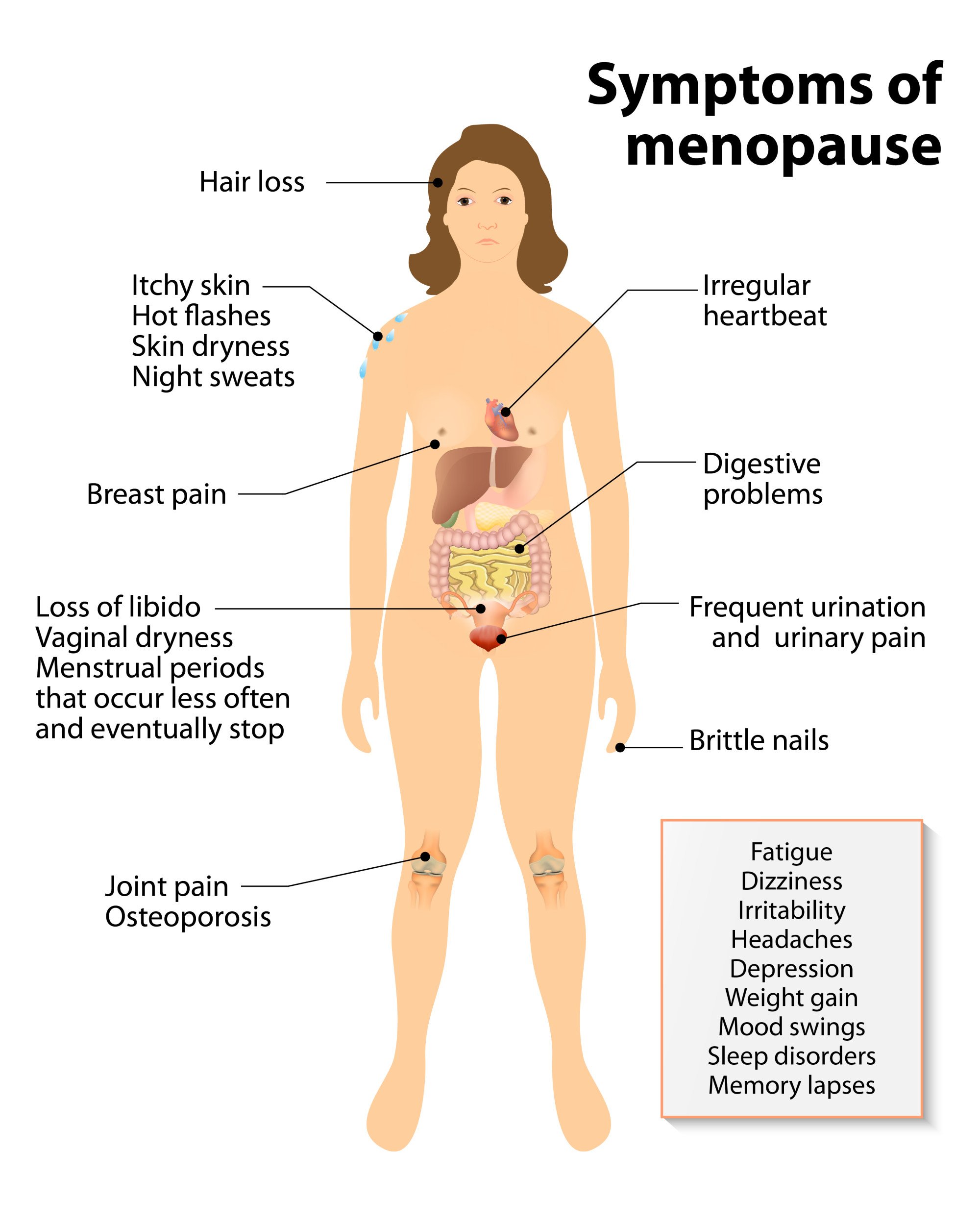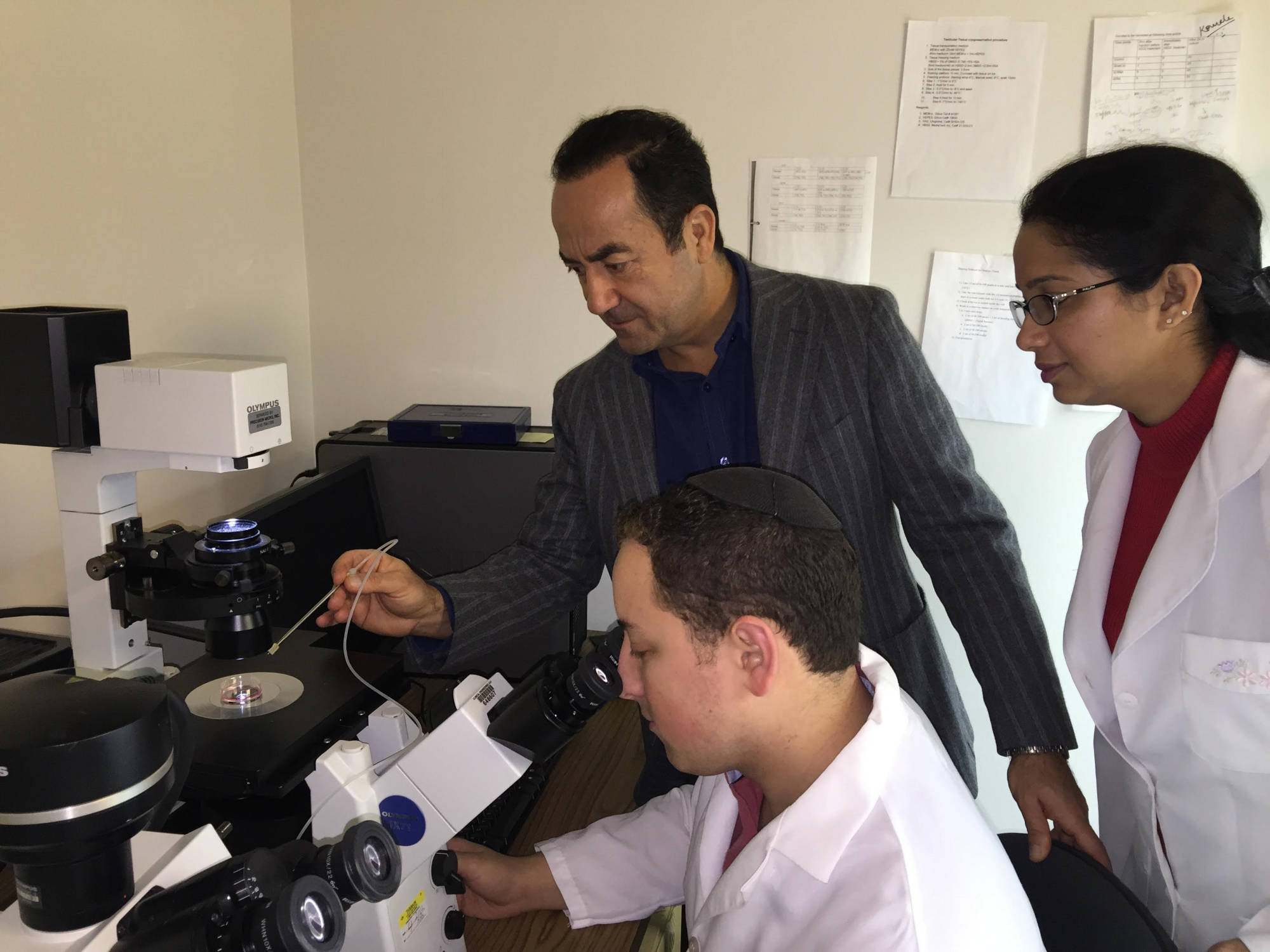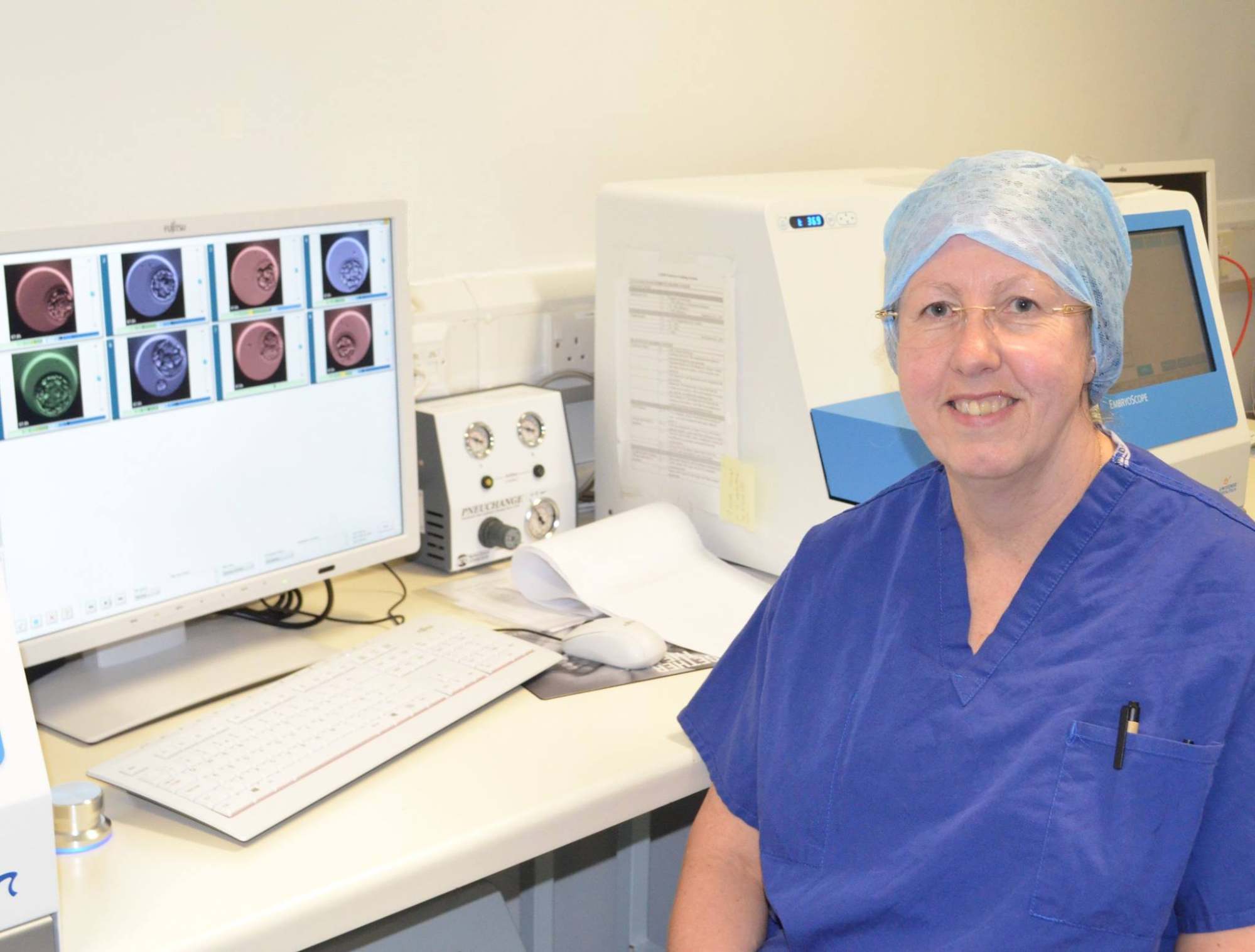
An end to menopause? It might happen soon – how fertility expert’s tissue preservation procedure for cancer patients could prevent or stall the change in healthy women
- It is a normal part of ageing, but menopause brings a host of physical and mental challenges; transplanting preserved ovarian tissue could halt the transition
- The procedure has helped women needing cancer treatment preserve their fertility, and the doctor behind it is researching its potential use in healthy women
Menopause is considered a normal part of ageing, but that does not mean the end of the menstrual cycle comes without a great deal of mental turmoil.
But imagine if women never had to experience menopause – and the physical and mental challenges that accompany this biological transition – in the first place?
Dr Kutluk Oktay, a leading expert in fertility preservation at Yale School of Medicine in the United States, sees a future in which this is possible. He has dedicated decades of his life to helping delay, reverse and even prevent menopause in healthy women.

In 1999, Oktay performed the world’s first successful ovarian transplant. Today, he envisions a future where freezing ovarian tissue for later implantation could significantly delay or even eliminate menopause.
Damaged, or ageing, ovaries often cannot make important hormones such as oestrogen or progesterone, requiring women to seek hormone therapy. Previously frozen, healthy ovarian tissue can be reimplanted to restore natural hormone production. It regains connections with the surrounding blood vessels and restores ovarian function in about three months.
Oktay told the Post that his research involves examining the ways in which “ovaries age and how that ageing results in menopause”.
Women are born with all the eggs they can have, he says, about 1 million at birth, and menopause occurs when that egg reserve runs out.

Throughout a woman’s lifetime, only about 500 of her reserve eggs are ovulated, Oktay says, leaving a staggering 99.9 per cent wasted because of processes that are not yet fully understood.
Once a woman reaches the age of 37, the quality of the remaining eggs begins to decline, leading to age-related infertility, he said.
Additionally, certain treatments such as chemotherapy can permanently damage the egg reserve, resulting in early menopause for women.
“From the beginning of my career,” he says, “I was interested in understanding these processes and finding solutions to address them.”
About 11 per cent of women who are in good health go through menopause at a later stage, after the age of 55, he said, and it is natural for women to experience menopause until the age of 62.

Oktay emphasises that menopause is a normal biological process and many women welcome it. Some women, though, may have concerns about the health complications associated with menopause, especially if they are at a higher risk because of other medical factors or family history.
From an evolutionary perspective, menopause appears to make little, if any, sense. As Oktay noted, “menopause was rarely experienced centuries ago when life expectancy was low for women”, making it “a modern-day phenomenon”.
As for his groundbreaking work in 1999, Oktay says that the first ovarian transplantation procedure through cryopreservation “led to subsequent research and transplants for preserving fertility in cancer patients, resulting in the birth of hundreds of babies and the reversal of premature menopause caused by cancer treatments”.
This success, and the experience gained with cancer patients, he says, “made us investigate its use in healthy women to delay menopause and potentially extend the reproductive lifespan”.
Why did it take more than 20 years to apply the findings to healthy women?

Oktay says that is because it may take decades to study ovarian tissue freezing to see if it can delay menopause. For example, if a healthy woman opts to have ovarian tissue freezing at the age of 35 and comes back to have it implanted before menopause, at around age 49, researchers need to follow her closely for a few years. This means the study could take at least 15-16 years.
Oktay’s findings suggest that the younger the patient, the more favourable the potential outcomes. A complex, mathematical model derived from data from years of research on this procedure suggests that it has the potential to significantly delay menopause for women under 40 and even prevent it entirely for those under 30.
It is crucial to consider the amount of tissue removed during the procedure as well, he noted. Removing too much tissue for preservation could result in early menopause, while removing too little may not effectively delay menopause when it is later reimplanted.
Dr Geraldine Hartshorne, a scientific director at the Centre for Reproductive Medicine at University Hospitals Coventry and Warwickshire in the UK, views the value in menopause a bit differently.
She notes that menopause occurs when women’s ovaries run out of follicles – the fluid-filled sacs that contain unfertilised eggs.

“If the stock of small ‘resting’ follicles in the ovaries could be controlled so that they are used up more slowly, then,” she said, “theoretically menopause could be postponed.”
“So far,” she stressed, “it is not possible to keep follicles inside the body at the resting stage, although molecules that control the start of follicle growth could be potential drug targets.”
An expert on female fertility, Hartshorne added: “In normal circumstances, menopause ensures that children conceived naturally are born at a time when a woman’s body is best able to become pregnant and give birth to a healthy child.”
This is a “valuable outcome”, she said, “because children are more likely to grow up with living parents, and less likely to suffer from a wide range of medical conditions associated with having older parents at the time of their conception”.
For this reason, Hartshorne believes that “menopause should be respected as a normal, though physically and mentally challenging, transition in women’s middle years”.

